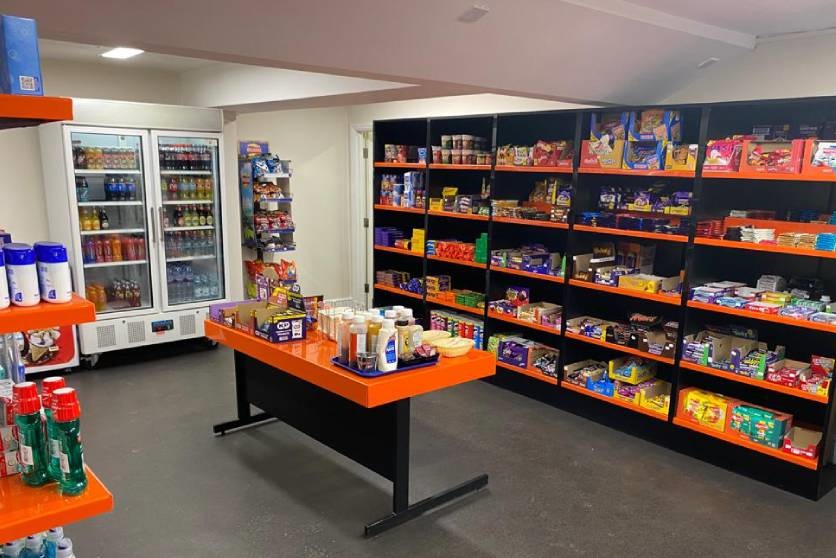- Topics
- Campaigning
- Careers
- Colleges
- Community
- Education and training
- Environment
- Equality
- Federation
- General secretary message
- Government
- Health and safety
- History
- Industrial
- International
- Law
- Members at work
- Nautilus news
- Nautilus partnerships
- Netherlands
- Open days
- Opinion
- Organising
- Podcasts from Nautilus
- Sponsored content
- Switzerland
- Technology
- Ukraine
- United Kingdom
- Welfare
Seafarer welfare research: patchy connectivity and five more discussion points
24 January 2024

A survey of seafarers visiting UK ports carried out by the Merchant Navy Welfare Board (MNWB) has shown some 69% want better connectivity on ships. Deborah McPherson reports
Results from the UK Port Welfare Seafarers' Survey, launched in spring 2023 by the MNWB, showed that 359 out of 519 seafarers who responded want better connectivity at sea and when they visit a UK port.
1. Internet connectivity still patchy
While 94% of those surveyed had access to the internet onboard for social connectivity, 69% said the quality of access could be greatly improved, while 6% still had no internet access.
Seafarers suggested a range of improvements for talking to their families and friends at sea while off duty, such as free connectivity for all crew, 24 hours a day, at faster speeds.
Many of these findings mirror those of Nautilus International's regular surveys of its members, and its longstanding campaigning and whitepaper calling for internet access for seafarers to be a right not a privilege.
Members also took part in a Department for Transport survey on internet access at sea in 2023, the result of which have yet to be announced.
One of eight recent amendments to the Maritime Labour Convention (MLC) also includes the provision that seafarers must be provided with appropriate social connectivity by shipowners, including internet access, and any charges for this are to be reasonable, while port states and shipowners are charged with providing internet access in port.
2. Not all shore leave is equal
Experiences of shore leave, which was severely curtailed or cut completely during Covid-19, seem to be improving even though 5% still reported going without.
While 95% of all respondents said that they had received some period of limited shore leave, 65% were only given one to four hours, with 28% receiving five to 10 hours. Only 2% had more than 10 hours shore leave.
3. What does the MLC say?
The MLC requires the master and shipowners to grant shore leave to benefit seafarers’ health and wellbeing, where compatible with their operational duties (not applicable to ships of traditional build), although there is no absolute duty to give seafarers shore leave in all circumstances. An example of where shore leave may not be considered to benefit the seafarer’s health and well-being is where there is a public disorder or a security risk in the port, or a pandemic.
However, MLC section 11 stipulates that shore leave should only be withheld or restricted where that is proportionate to the risk. Complete bans on shore leave should not be in use for any seafarer or ship regardless of rank, contract duration, operating area or operational duties – a situation experienced by many as part of the crew change crisis during the Covid-19 pandemic.
4. Most highly rated activities ashore
When it came to rating port services in the UK, almost 77% of respondents said that seafarers' welfare facilities in the UK are excellent. However, the lack of transport available to seafarers to get to shops was mentioned by 15%, and 10% of respondents commented that every major port in the UK should have a seafarers' centre – comparing unfavourably the lack of facilities available in the UK compared with Europe.

One seafarer suggested 'something to break down the barriers between crews from each country – as we all just stick with our own countrymen' was also needed.
5. Who took part?
The nationwide MNWB survey ran over a three-month period at UK ports both online and via paper copies distributed by port chaplains, ship visitors, seafarer centre managers and port staff. It asked for seafarers' feedback on services and facilities available to them and how important they were with the limited time they had in port. It included questions on welfare and shore leave.
Out of the 519 total respondents, more than 50% were Filipino, over 15% were Indian and less than 5% were British, and over two thirds were between the ages of 18 and 40 years.
6. What happens now?
Deputy chief executive of the MNWB Sharon Coveney said: 'We are concerned that 69% of seafarers believe connectivity needs improving on ships. While our jointly-funded MiFi project provides crucial social connectivity so seafarers can stay connected with loved ones, many are still hampered by poor connectivity, which is why a long-term, sustainable solution is needed to combat this issue with the help of shipowners and ports.
'It's no myth that seafarers just want parity with those in shore-based jobs. Yes, it's very different at sea, but basic human needs can still be met. When ashore, it is the simple things that they appreciate like the opportunity to go shopping, make a video call, relax in a comfortable environment. Seafarers keep the global economy moving and things would grind to a halt without them.'
- read the full UK Port Welfare Seafarers' survey
- find out what Nautilus members have to say on connectivity in the Nautilus Social Conditions report
Tags
More articles
'First class' refurbished seafarers' centre opens in Immingham
Maritime Minister Lord Davies welcomed the opening of a refurbished seafarers' centre at the Port of Immingham, UK, run by QVSR Seafarers Centres (QVSR SC).
Empowering seafarers: The rising influence of trade unions
Nautilus social conditions report
Download the full Nautilus International Social Conditions Survey Report – the latest instalment of a decades-long research project to measure how our members are being treated in the maritime workplace.
